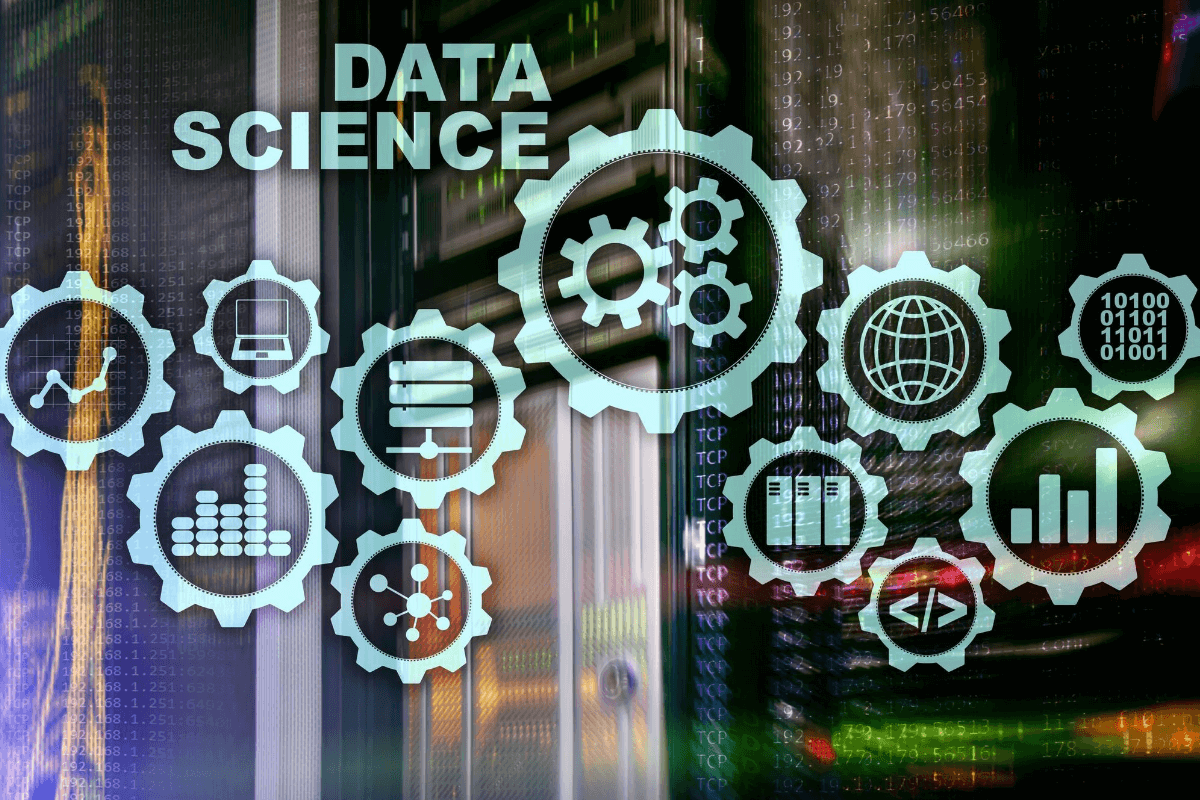Leave us a message
We usually respond within a few hours. You can also make an appointment with us for a specific date by clicking on the link to our calendar below.


For those of you who have not yet met the term 'data science', a short definition. It is a new field of science (practice ?) combining elements of statistics, computer science and management sciences.
Data science can be defined as the discovery of hidden knowledge, seemingly inaccessible, in large data sets that can be used in practice.
Data science, a machine learning
A part of data science is the so-called machine learning (ML) - a field of knowledge which involves algorithms discovering patterns among data sets and making specific decisions on this basis. Machine learning is not a new concept - it is more or less as old as modern computers. The last 15 years have seen an increase in its importance due to the growth of the so-called cloud solutions (link to the entry: What is a cloud?) and a gigantic increase in computing capabilities, which have become much more accessible.
A subcategory of machine learning is the term "deep learning" - the creation of algorithms that reproduce the neural connections of the human brain.
Will the algorithm replace humans?
Many commentators claim that machine learning at today's level of development (after 2010) has become a breakthrough in the invention of electricity or a steam engine. There are also voices that data science will replace the computer science we know - for example, an algorithm can more effectively analyse user system logs and propose its further development than a system analyst (the so-called 'mining system'). Will machine learning algorithms start writing code instead of programmers?
Today, machine learning algorithms are responsible for technologies such as face recognition, sound recognition and natural language processing. Data science facilitates the development of medicine or security (physical, financial, IT).
Covid-19, and data science development
As we mentioned, the upward trend in data science has been ongoing for several years. The Covid-19 pandemic may cause a significant acceleration of the trend. It is clear that data science is accelerating, developing medical research and thus contributing to the development of medicines and vaccines. It is also clear that data science helps to develop applications used in the pandemic to track contact between people.
The acceleration of the development of data science is clearly shown by the experience of the 2008/2009 crisis. At that time, the labour market for people without a strict professional specialisation suffered most. A number of studies and surveys carried out in later years show that the recession accelerated the digital transformation of companies. It can be generalised that the companies that have done the most to implement advanced analytics and learn to use Big Data have done the best.
Companies have focused more on the internal training of employees and the creation of internal educational programmes in the area of data analysis.
New professions related to data science do not require certificates or specific fields of study - so it is difficult to talk about structured education in this area and structured talent acquisition. In the area of data science, companies need to build multidisciplinary teams with diverse expertise in different business areas.
We therefore anticipate an increase in the market for training in the area of data science and data analysis. If the education system is not keeping up with the growth in data science, business will have to replace it here. In recent months, we have already heard about the concept of 'data culture' as an element of organisational culture.
In our view, the last few months, the pandemic period, have also seen the development of crowd solving platforms and data collection platforms.
In June 2020, Facebook launched a new project - Forecast
Available for the time being only on invitation in the US and Canada, Forecast creates a community that asks questions about trends and answers to each other. Nothing new in theory. However, Forecast is supposed to be the answer to the flood of fake news on the Internet and the manipulation of information - every question asked at Forecast receives the votes of other users and thus gains a rating.
There are also initiatives around the world to build online platforms for cooperation between data scientists in the fight against Covid. Both the European Commission and the White House have launched such a portal. Interestingly, a similar initiative has also been launched by the African data scientists community, the Zindi, which is a private start-up.
One thing is certain: the real boom in demand for data scientists is yet to come.

We usually respond within a few hours. You can also make an appointment with us for a specific date by clicking on the link to our calendar below.